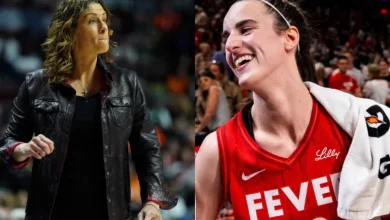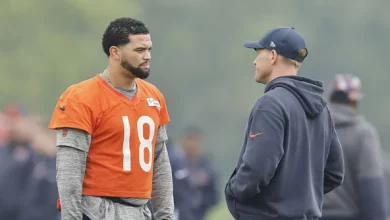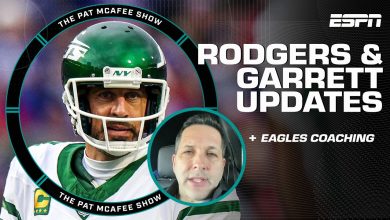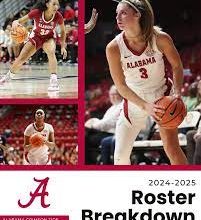Wisconsin Sues Miami Over Alleged Poaching of Xavier Lucas Amid Active Contract Dispute
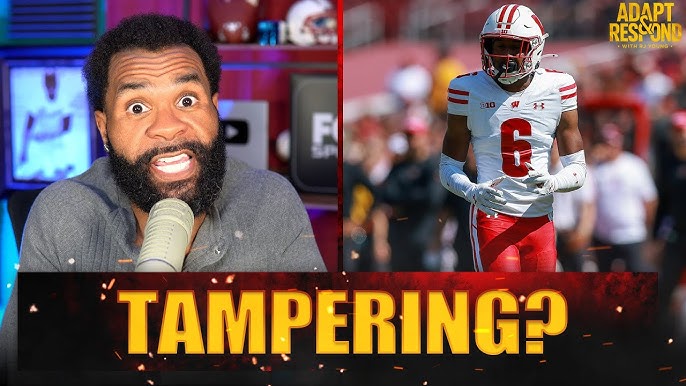
In a bold and unprecedented move within the college football landscape, the University of Wisconsin has filed a lawsuit against the University of Miami, accusing the Hurricanes of poaching Xavier Lucas, a highly regarded football player who was still under contract with Wisconsin. This legal action highlights the increasingly complex and competitive nature of college football recruiting, particularly as the NCAA landscape evolves with new rules regarding player transfers, Name, Image, and Likeness (NIL) deals, and contract enforcement.
The lawsuit underscores the tensions between universities in maintaining contractual agreements with student-athletes while navigating an ever-shifting recruitment environment. In this article, we will explore the background of the dispute, the details of the lawsuit, its implications for college football, and what this could mean for both Wisconsin and Miami moving forward.
Background: Who Is Xavier Lucas?
Xavier Lucas is a standout football player who has drawn attention from several top-tier programs for his talent and versatility on the field. A highly rated recruit and key contributor to Wisconsin’s football program, Lucas was expected to be a foundational player for the Badgers.
Lucas’s contract with Wisconsin reportedly included binding terms intended to secure his commitment and participation with the team. However, recent developments indicate that Miami aggressively pursued Lucas, allegedly violating the terms of his contract with Wisconsin.
The Lawsuit: Allegations Against Miami
Wisconsin’s lawsuit alleges that Miami engaged in illegal recruitment tactics to lure Xavier Lucas away while he was still under contract. Specific accusations include:
- Inducement During Contract Period: Miami is accused of contacting Lucas and offering incentives to encourage him to break his contract with Wisconsin.
- Interference with Contractual Relations: The suit claims Miami knowingly interfered with Lucas’s contractual obligations, causing him to breach his commitment to Wisconsin.
- Violation of NCAA Rules and Regulations: The university alleges Miami’s recruitment tactics may have violated NCAA rules, particularly those related to tampering and recruitment during active contracts.
According to Wisconsin’s legal team, Miami’s actions constitute a serious breach of sportsmanship and contractual ethics, threatening the integrity of collegiate sports contracts.
Miami’s Response
Miami has yet to release a detailed official statement addressing the lawsuit. However, insiders suggest that the Hurricanes may argue the following points in their defense:
- Player Autonomy: Lucas, as a student-athlete, may have exercised his right to explore opportunities, particularly given the evolving NCAA transfer portal system.
- No Direct Contractual Violation: Miami might contend that their contact with Lucas did not amount to a legal breach or inducement as alleged.
- Compliance with NCAA Rules: Miami could argue that their recruiting process followed NCAA guidelines and policies.
Regardless of Miami’s defense, this lawsuit brings unprecedented legal scrutiny to recruitment strategies that previously operated in a grey area.
The Contractual Context: Player Agreements in College Football
Historically, college athletes did not sign binding contracts akin to professional players. However, recent changes in NCAA policies, especially with the introduction of NIL agreements and transfer portal regulations, have led schools to develop more formal contracts with athletes to secure commitments and manage expectations.
Lucas’s contract with Wisconsin likely included provisions that:
- Defined the term of commitment to the program.
- Restricted unauthorized contact or recruitment by rival programs.
- Outlined consequences for breach of contract, including potential legal action.
The Wisconsin lawsuit tests how enforceable these contracts are, and whether rival programs can be held liable for inducing players to break them.
Legal Precedents and Challenges
Few legal precedents exist in collegiate athletics regarding contract enforcement between athletes and schools. This lawsuit may set a new standard, but it also faces challenges:
- Student-Athlete Rights: Courts may consider the autonomy and rights of student-athletes to change schools.
- NCAA Rules: Since the NCAA has its own governance structure, courts might defer to internal disciplinary procedures rather than civil litigation.
- Proof of Intent: Wisconsin must prove that Miami knowingly interfered with Lucas’s contract, a potentially difficult legal hurdle.
The case will likely spark debate over the balance between protecting schools’ investments in athletes and respecting player freedom.
Implications for College Football Recruiting
The lawsuit could have wide-reaching effects on college football recruiting:
- Increased Legal Scrutiny: Other schools may face lawsuits if they engage in aggressive recruitment of players under contract.
- More Formalized Contracts: Programs may create more detailed and binding agreements with recruits to deter poaching.
- Recruitment Practices Under Review: The NCAA might revisit and clarify rules regarding communication with athletes under contract.
This case represents a potential shift toward a more legally regulated recruiting environment, increasing accountability but also adding complexity.
Impact on Wisconsin and Miami Football Programs
For Wisconsin, the lawsuit is a statement of their commitment to protecting their athletes and maintaining program integrity. It sends a strong message to rivals about respecting contractual commitments.
Miami, on the other hand, faces potential legal and reputational risks. If found liable, the Hurricanes could face penalties, restrictions on recruiting, or damages payable to Wisconsin. Even if they prevail, the legal battle may strain relationships with other programs and the NCAA.
What’s Next?
The case is expected to unfold over several months with potential settlement discussions or a full court hearing. Meanwhile, both programs will continue their recruiting efforts for the upcoming season under heightened scrutiny.
Xavier Lucas remains a key figure in the case, and his decision regarding where to play will be closely watched. The outcome may also influence how other athletes and schools handle recruitment and contracts going forward.
Wisconsin’s lawsuit against Miami over the alleged poaching of Xavier Lucas marks a significant moment in college football’s evolving legal landscape. As schools navigate new recruiting rules, NIL rights, and transfer protocols, the enforcement of contracts between athletes and programs will be tested like never before.
This lawsuit is more than a dispute between two universities—it is a bellwether for the future of college sports, player rights, and recruitment ethics. Fans, administrators, and legal experts alike will be watching closely as the case progresses, understanding that its resolution could reshape recruiting practices across the nation.



